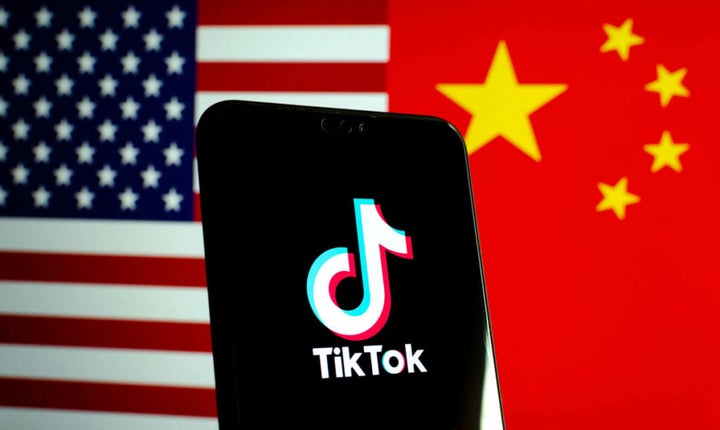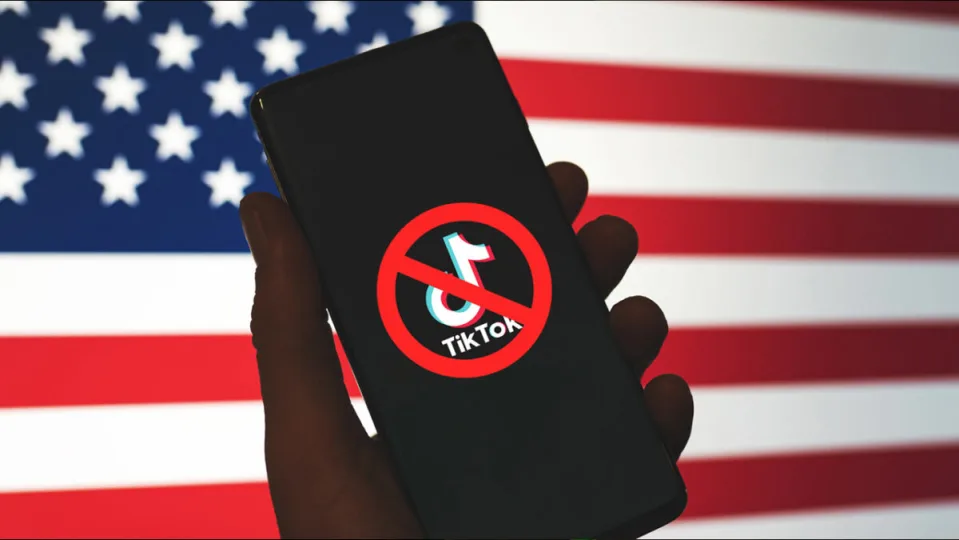A new bipartisan bill has been introduced by US senators that could lead to the banning of TikTok, the Chinese-owned social media app, in the country. The bill, known as the Restricting the Emergence of Security Threats that Risk Information and Communications Technology (RESTRICT) Act, seeks to address potential risks posed by foreign technology by enabling the government to identify and respond to emerging threats in a proactive manner.
Under the proposed legislation, government agencies would have the authority to take action against services they consider to be threatening, as long as they have access to personal data belonging to more than one million US citizens. The bill would establish a formal process for such actions to be taken.
It should be noted that while the RESTRICT Act does not specifically mention TikTok, it does encompass companies from countries that are viewed as adversarial to the United States, including China, Cuba, Iran, North Korea, Russia, and Venezuela. The bill aims to address the potential security risks associated with foreign technology companies and establish a process for the government to proactively respond to emerging threats.
A spotlight on the RESTRICT act
The RESTRICT Act contains several provisions, including the creation of processes by the Secretary of Commerce to identify and prevent transactions involving foreign adversaries’ interest in information and communications technology products that may pose a risk to national security. Particular focus will be placed on evaluating technology products used in critical infrastructure, telecommunications products, and emerging technologies with significant national security implications.
The legislation mandates that the Secretary of Commerce take comprehensive measures to address the risks associated with untrusted foreign technology products. This will involve considering concerning activity identified by other government entities.
Additionally, the Secretary of Commerce must collaborate with the Director of National Intelligence to provide declassified information to the public and business community to educate them about transactions that are denied or mitigated due to undue or unacceptable risks.
Why is TikTok seen as a threat to US national security?
According to Senator Mark Warner (D-VA), who is the primary sponsor of the RESTRICT Act, TikTok is perceived as a threat to US national security because of its potential to enable surveillance by the Chinese Communist Party and promote malign influence campaigns within the United States.
Recently, the House Foreign Affairs Committee proposed the Deterring America’s Technological Adversaries Act (DATA Act), which would direct President Joe Biden to impose sanctions or ban TikTok if his administration finds that the platform has shared US user data with individuals affiliated with the Chinese government.
Related: TikTok’s latest craze could be putting your health at risk
While the House bill is focused primarily on TikTok, Senator Warner’s Senate proposal is more comprehensive. It seeks to establish a system to assess and penalize foreign companies that pose a threat to US security, rather than solely focusing on TikTok.

TikTok refutes claims that it stores US user data in China
Concerns have arisen over how TikTok manages US user data and whether it stores such data in China. While there is no conclusive evidence to support claims that TikTok currently stores US user data in China, industry experts have raised concerns about the potential national security risks posed by the company’s connections to China and its parent organization, ByteDance.
In the event that TikTok were to store US user data in China, it could potentially provide the Chinese government with access to sensitive information such as browsing history, location data, and device information, among others. The Chinese government could leverage this data to perform surveillance, gather intelligence, or carry out cyberattacks.
TikTok collects an extensive range of user data, including location data, device information, browsing history, as well as personally identifiable information such as email addresses and phone numbers. The platform claims to utilize this data to personalize the user experience, provide improved recommendations, and deliver targeted advertisements.
Despite the fact that TikTok maintains that it stores US user data in the United States and Singapore, it is noteworthy that the company has previously come under regulatory scrutiny and legal action over its handling of user data. Hence, it is important to continue monitoring TikTok’s management of US user data and take necessary measures to reduce any possible national security risks.
Despite TikTok’s assurances to limit safety risks, negotiations with the Committee on Foreign Investment in the United States (CFIUS) have been ongoing for more than three years. The RESTRICT Act could deal a severe blow to TikTok’s US operations, potentially resulting in a ban or severance of ties with American companies. Therefore, it is crucial for marketers to keep an eye on the developments surrounding the RESTRICT Act, as it could have implications for marketing strategies that depend on the platform.

The RESTRICT Act represents a significant step in addressing the potential national security risks posed by foreign technology companies, including TikTok and its Chinese-owned parent entity ByteDance. The legislation seeks to establish a formal process for government agencies to identify and respond to emerging threats, with particular emphasis on evaluating technology products used in critical infrastructure, telecommunications products, and emerging technologies with significant national security implications.
Whether or not the act will actually result in the ban of the use of TikTok on US soil remains to be seen, but the grounds for a ban or at least an insistence by the US government about greater transparency on the part of ByteDance definitely seems to be present. We’ll keep you updated as the situation unfolds.


